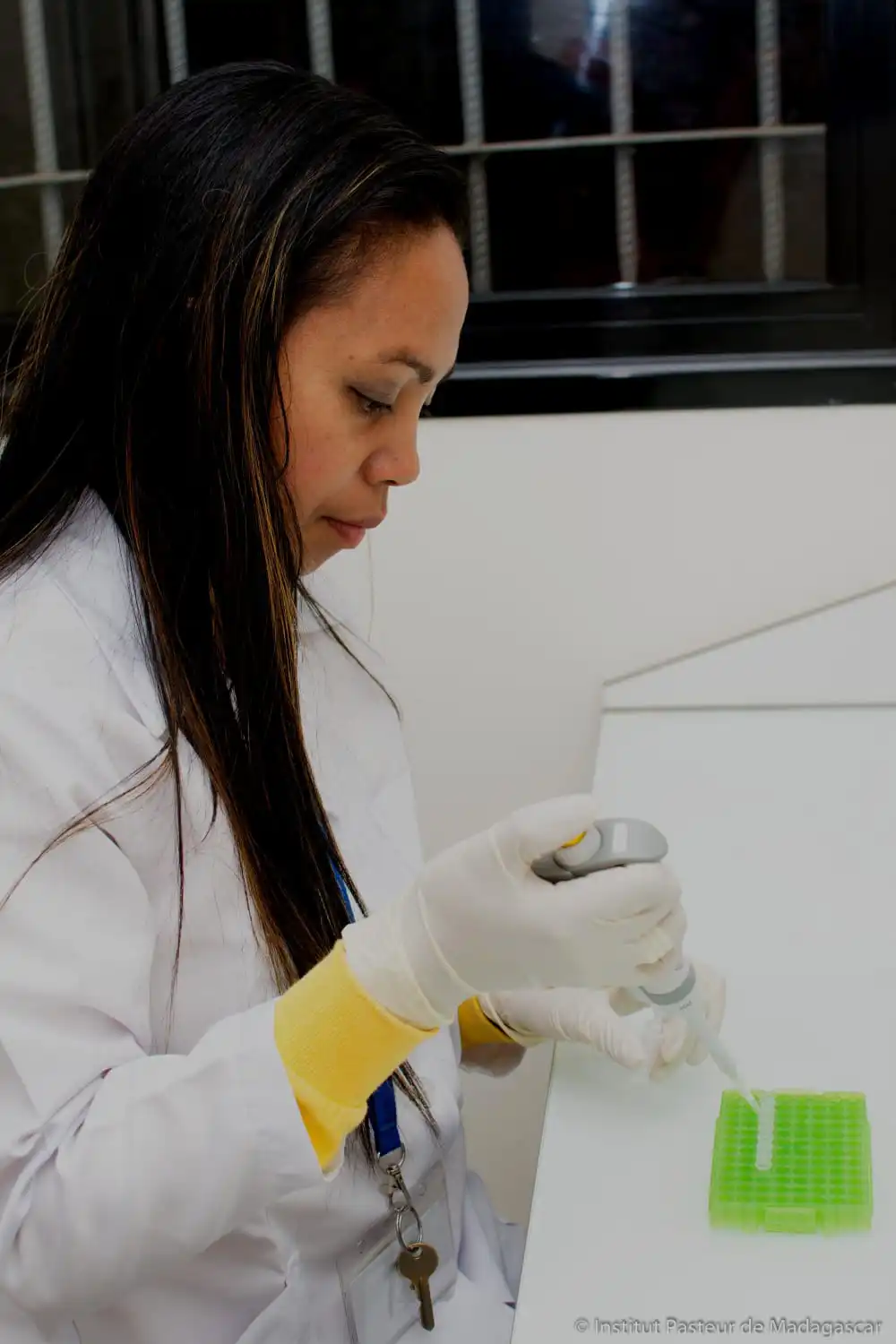Host organisation: University of Cape Town, South Africa
Project title: Why do some flea sub-populations seem to transmit plague more readily than do others? And how does plague persist and spread in Madagascar?
Dr Mireille Harimalala first trained as a plant biologist and for her PhD she worked on the genetic diversity of cassava mosaic geminiviruses and their origin and spread in Madagascar.
In her current role at the Institut Pasteur de Madagascar, Dr Harimalala has turned her molecular genetic skills to plague, epidemics of which devastated Eurasia and Africa across the centuries before modern disease control.
AREF Fellowship research project:
Dr Harimalala will use her AREF fellowship as a stepping stone towards developing her own programme of work investigating the evolutionary history, population genetics and dispersal pattern of flea vectors in relation to plague persistence and spread in Madagascar.
Her placement with Dr Darren Martin at the University of Cape Town will enable her to grow her specialist knowledge of population genetics-based and phylogeographic-based analyses and related platforms and software. Using her own data, Dr Harimalala will then investigate various analytical and modelling methods.
“At UCT I expect to generate initial findings on the geographical and temporal origins of fleas and rats in my country,” she says. “Understanding the vectors is essential to fighting the spread of this disease and to diminishing the risk to human lives.”



